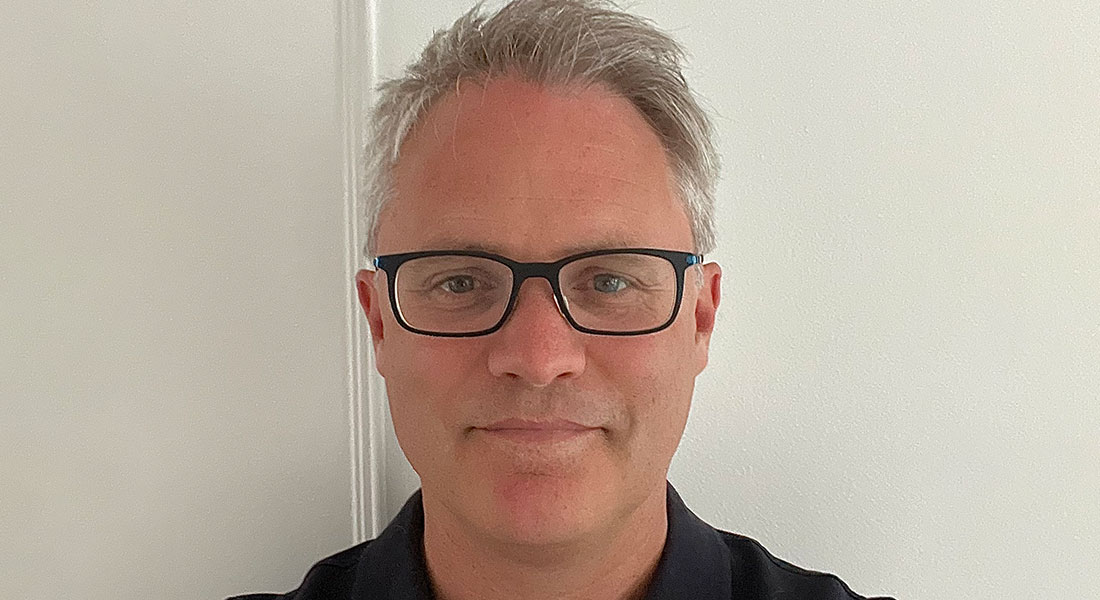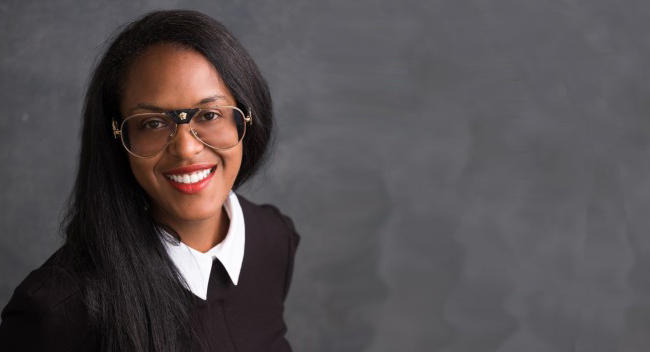
Tony Bishop appointed Chief Data & Analytics Officer
Today we announced the appointment of Tony Bishop as Chief Data & Analytics Officer, effective immediately. Tony has a deep understanding of data strategy and...

“Being female and black is the antithesis of the corporate identity”
As we celebrate International Women’s Day in March, we recently sat down with Aspen Non-Executive Director Tammy Richardson-Augustus. Since 2007, Tammy has been a Partner and a member of the Bermuda Corporate Department of Appleby, a global provider of offshore legal and fiduciary services. She also is a member of the Aspen Board as a Non-Executive Director and serves on Aspen’s Conflicts Committee. Additionally, she is a member of the Bermuda Bar Association and a Justice of the Peace.
What led you to take up a career in law?
There was no what, there was only a who – the late Julian E S P Hall, ESQ. BA LLB, (who famously remarked: “…if I was going to have a destiny, it might as well be a destiny to lead. Anything short of that is no destiny at all”.
Julian Hall redefined the boundaries of what was possible and undoubtedly led countless people of my generation to read law. Julian Hall, a true thespian, emanated from humble roots to become a formidable advocate. I was transfixed when I first heard him speak and, at a mere five years old, declared to my parents that I wanted to pursue whatever career he held.
Additionally, my high school teacher, the late Mr. Kreller, inspired my insatiable appetite for reading, critical eye for detail and reminded me daily “have your wits about you”; and, my ballet teacher, Ms. Barbara Frith, taught me the soft skills of discipline, perseverance, confidence and creative intelligence.
My ode to Julian and my beloved teachers is to be a trailblazer within the corporate sector. Representation matters.
What are you most proud of having achieved so far in your career?
As a lawyer, the external barometer for success is to rank in the world’s leading legal directories. The various journals research and analyze the capabilities of lawyers and firms across the globe and assign a ranking based on a series of criteria (including pedigree and bench strength, track record for attracting an enviable roster of clients, reputation for handling complex deals, etc.). To be consistently recognized among one’s peers for sound judgement and legal acumen is an incredible honor.
My litmus test is not only to be known for innovative deal-making, but to be an example of a compassionate, principled, and servant leader who cares deeply about empowering diverse teams.
Is there a particular moment or decision in your working life that has been important?
The singular most important decision in my working life was to accept the invitation to attend the 2007 India/Malaysia Commonwealth Study Conference (CSC) entitled ‘Working Together for Inclusive Growth and Development’. I was the first woman to be selected to represent Bermuda in the 50+ year history of the CSC.
The CSC brought together emerging leaders across the Commonwealth and from all sectors of society (spanning business, government, labor unions, and NGOs), who left behind their usual roles to examine and discuss a complex global issue. There was a focus on process, partnership, and potential.
The CSC was a catalyst for new friendships and, upon its completion, I became a member of the eminent intergenerational network of global alumni. This unique experiential leadership development format was so impactful, that in 2011 I worked with then Governor of Bermuda, Richard Gozney, and other alumni to organize the inaugural Caribbean-Canada Emerging Leaders Dialogue, which saw Princess Anne travel to Bermuda to oversee the tour.
What was it about Aspen that attracted you to become a Non-Executive Director?
I am value-driven and welcome a challenge. I have strongly aligned with the mission and principles of Aspen and enjoy the opportunity to usher changes to the culture, transform traditional thinking around problem-solving and help the business achieve sustainable growth.
It has proven to be an incredible experience to date.
Have you had a formal or informal mentor or someone you looked up to? If so, can you share your experience and how this relationship was impactful?
Undoubtedly, my most ardent and constant mentors have been my parents (the late Kenneth A Richardson CVO CBE JP and Brenda Richardson) to whom I credit my gene of perennial resilience, passion for learning, and the desire to be an ethical leader.
My mother radiates optimism and is unstoppable.
My father crowned his career as the first Black and youngest person to hold the dual offices of Secretary to Cabinet and Head of the Civil Services. He defied the odds in his health, as in his career, and showed persistence to overcome severe illnesses (including two brain tumors).
He worked behind the scenes negotiating U.S./Bermuda Tax Treaties, breaking the impasse in the 1981 general strike, organizing the 1994 Royal Visit to Bermuda and the 1996 Commonwealth Finance Ministers Conference, etc. These career achievements were demonstrative of his sagacity, collaboration, collegiality, and service – all of which I strive to emulate.
My parents were also imbued with a deep sense of fairness and community spirit that has informed my mindset. They never veered from the conviction that every person matters.
You have a varied career, from your “day job” as a Partner at Appleby to being a founding member of the Bermuda Chapter of the Women in Shipping and Trade Association and mentoring other women in Bermuda. What’s the secret to wearing so many hats?
There are two equally powerful forces at work:
Do you feel that being a Black woman in the corporate world has posed specific challenges? If so, can you share the approach you’ve taken to overcome them.
Being female and black is the antithesis of the dominant corporate identity.
I wanted to feel enriched and supported as I entered the legal profession, for my strengths to be valued, not just absorbed. Yet I often felt like a spectator.
But, there was no time to lament. For every assignment given to my colleagues, I inherited a potent trifecta of assignments:
Experience and judgement have taught me that being a minority can have its advantages – society benefits from diverse representation and there is now a push for the industry to change; as you gain agency, pay forward the support and guidance and be intentional about fostering a diverse, equitable environment; and having an intrepid persona doesn’t hurt.
Ultimately, the conversation is bigger than those of us who live and inspire greater diversity. Equality requires targeted problem-solving and a collective re-think of the systems that produce inequality to begin with.
Do you have any advice for young Black people who are setting out in their career? What advice would you give to your younger self?
I am affectionately referred to as a “lifer” having spent my career at the same firm. For my generation, success was the result of hard work, bottom-line results, and seniority.
I am mindful that the younger generation will be entering a very different, more fast-paced, diverse, global economy than the one I entered…requiring one to possess curiosity, grit, and greater agility.
If I was setting out on a career today, my inner voice would reassure me of the following:
What is an interesting fact about you that we don’t know?
Every year I undertake a seismic challenge to demonstrate to my children that one should be a life learner. It has included everything from learning sign language to writing the certified public accountancy exams.
In 2019, given my love for football and its critical importance in building valuable life skills, I set upon the task of securing my Concacaf D Coaches License (U9) through the Bermuda Football Coaches Association. It was incredible to gain insight on the specifics of teaching grassroots football, the essential elements of which are relationships, technical development and fun. Truth be told, since achieving licensure, my foray into the world of coaching remains side-lined and is restricted to tips offered to my son after his games.
In 2020, recognizing that domestic violence was becoming the “shadow pandemic”, I initiated a collaboration with a U.S. non-profit called One Love Foundation and became the first Bermudian certified facilitator and ambassador for the organization. My inaugural event was a three-day Student Leadership Summit on building healthy relationships attended by a cohort of 30 students aged 14 to 22, from public and private schools and universities.